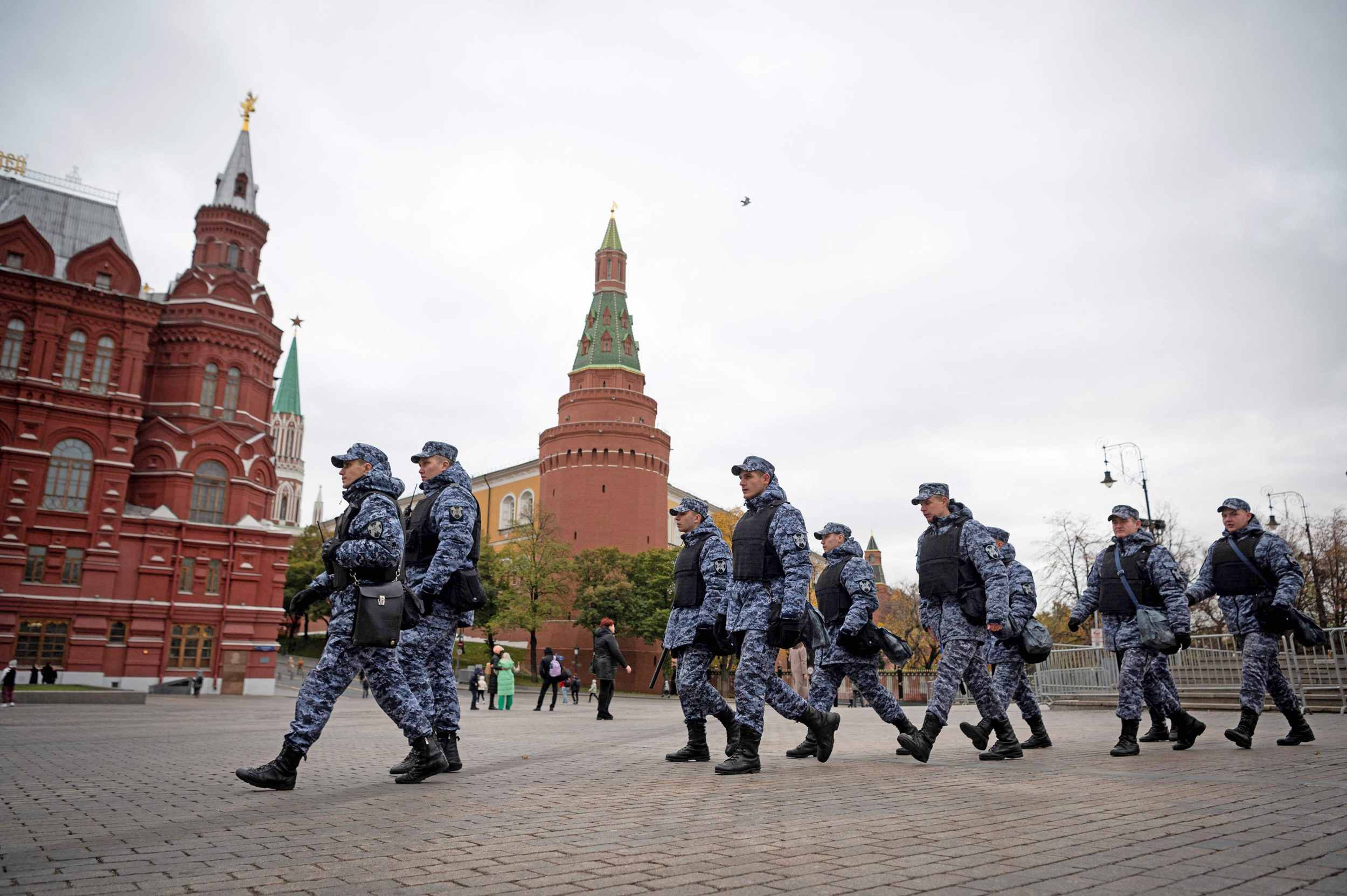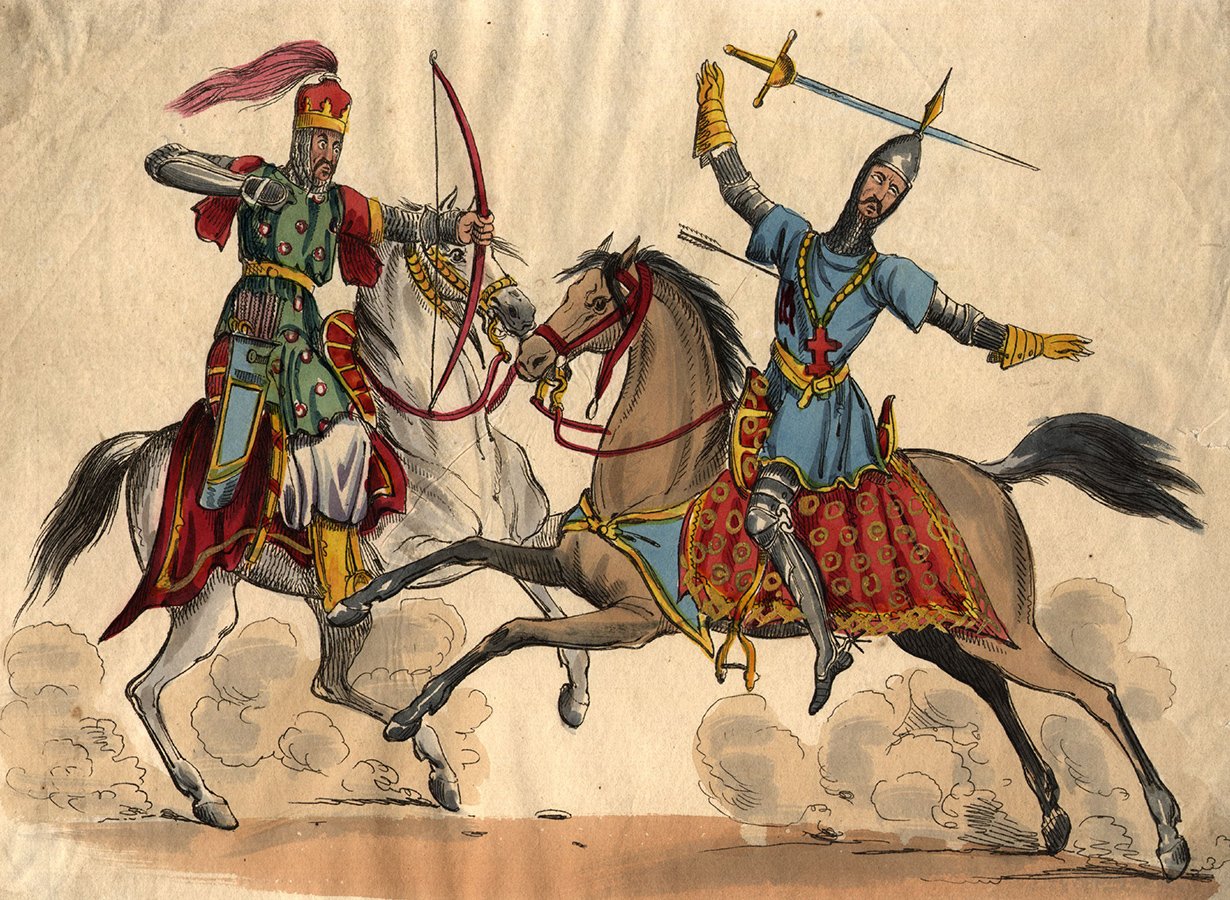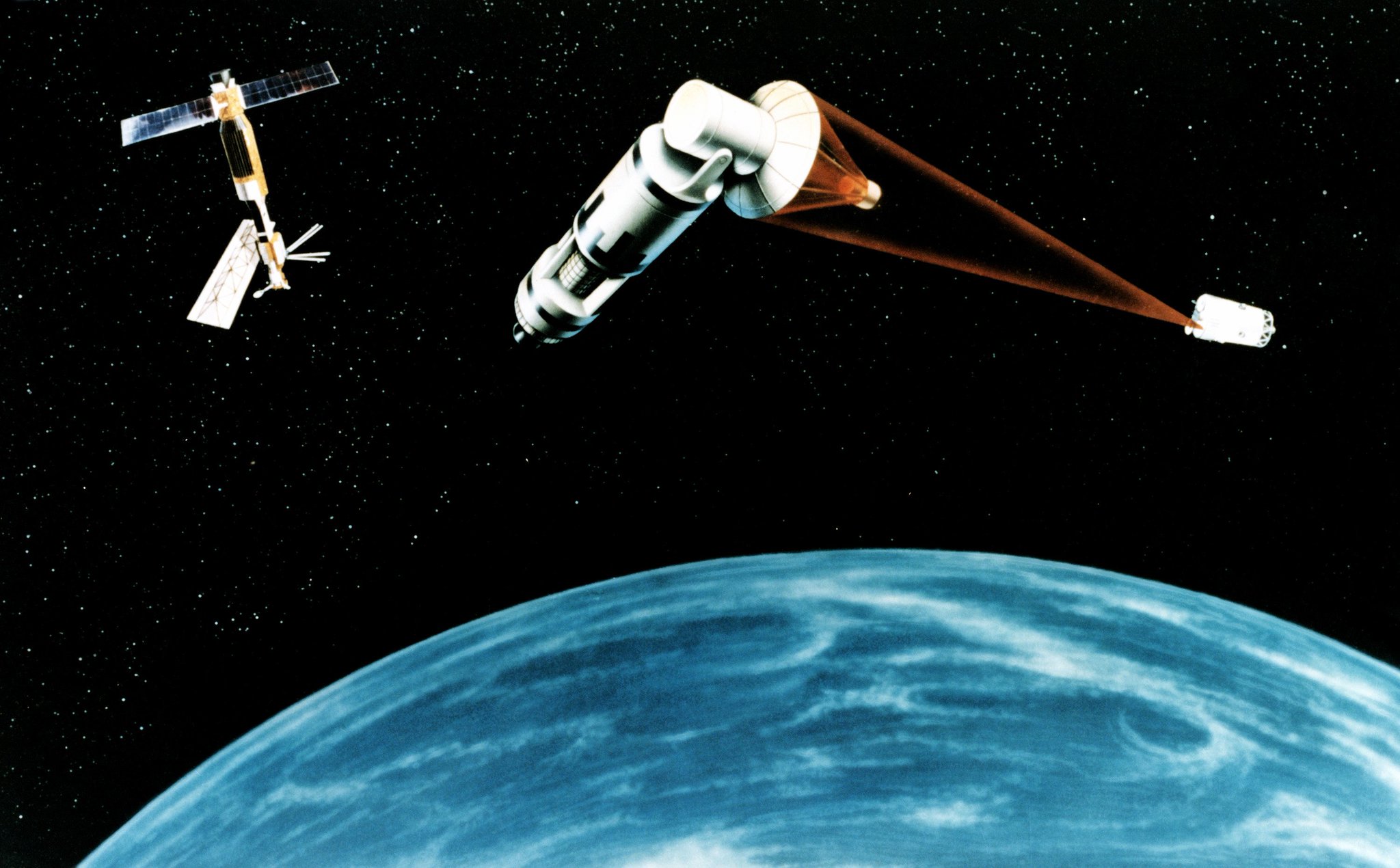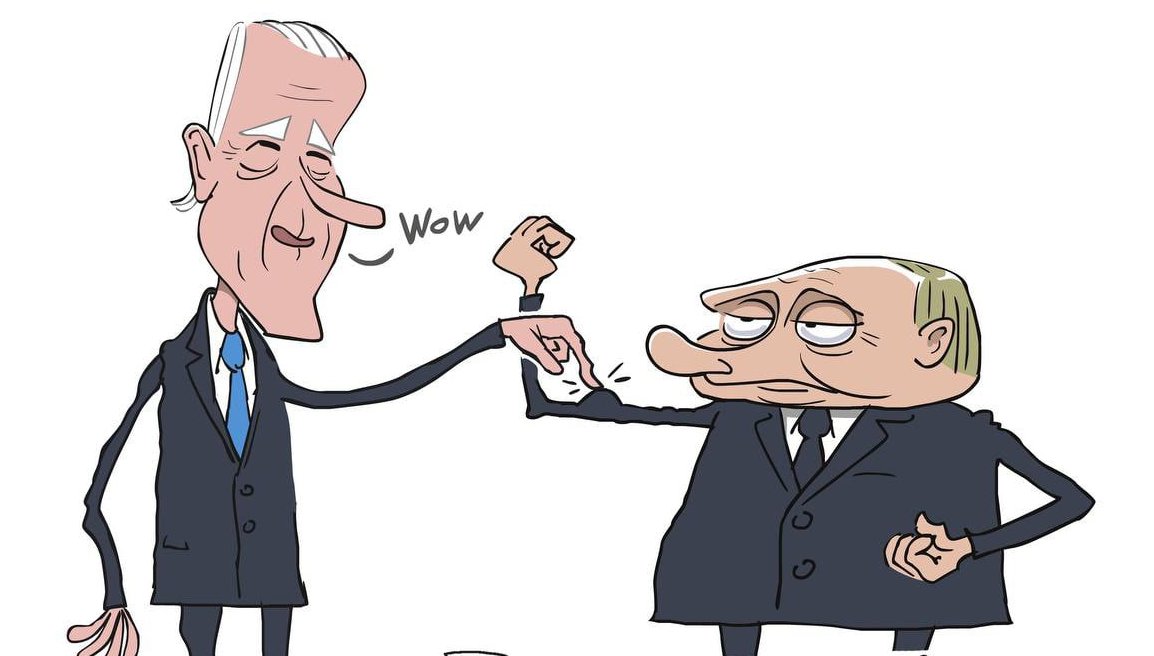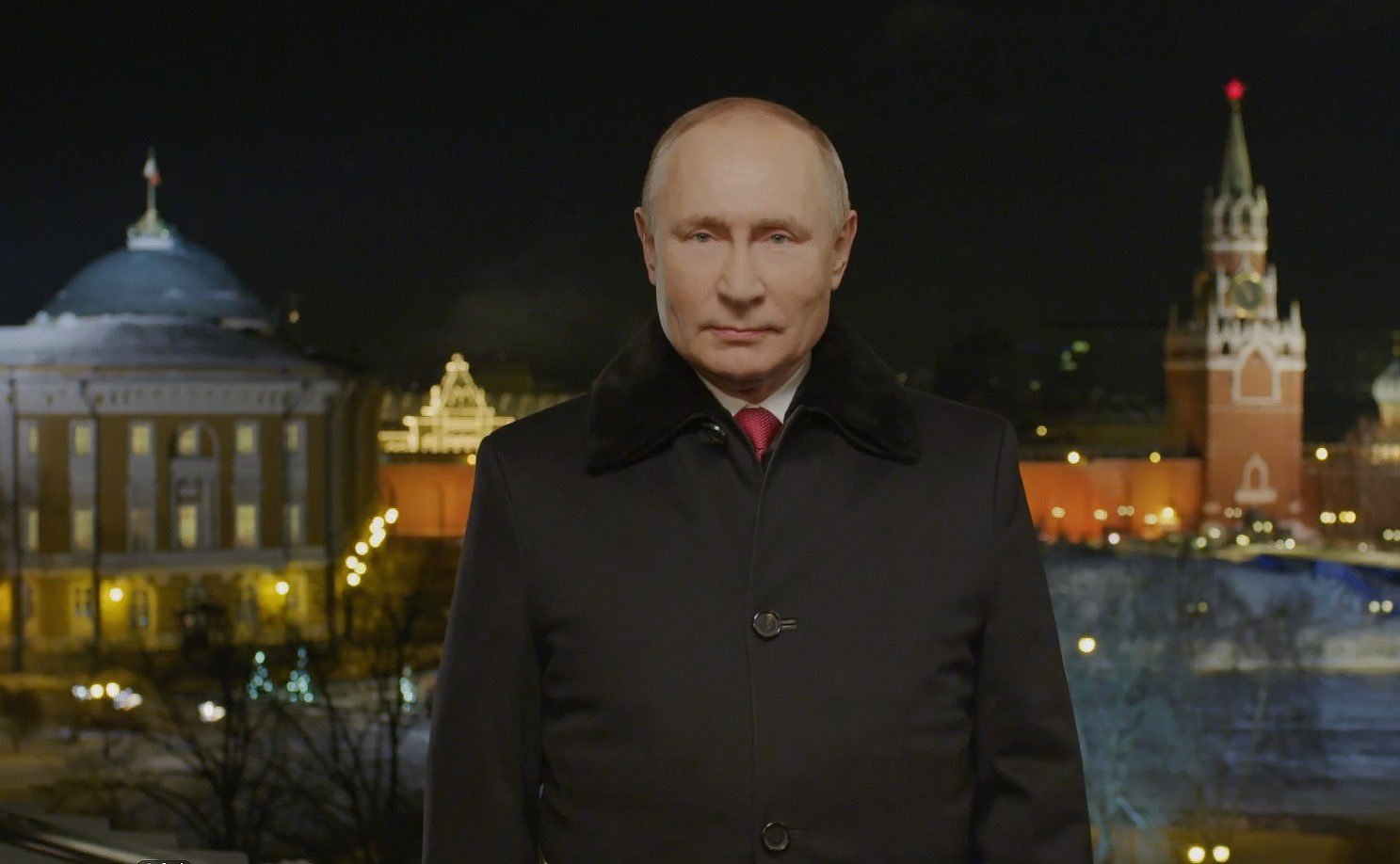The Powder Keg Of the Post-Soviet Central Asia: Pent-up anger, large-scale destruction. How Kazakhstan could shift Putin’s calculus on Ukraine: Kremlin will avoid fighting on two fronts.
The Powder Keg Of the Post-Soviet Central Asia And The Russia – Ukraine Conflict
Pent-up anger, large-scale destruction
On Wednesday, thousands of people stormed the city hall and other government buildings in Almaty, Kazakhstan’s most populous city and commercial center. Several government buildings reportedly went up in flames. Protesters also briefly took control of Almaty airport.
#CIA #ODNI #JOSSICA
Post-Soviet Central Asia is a powder keg. Potentially, it is the Western Ukranian & Eastern Asian fronts. Putin’s regime will fall & crumble like a house of cards. Whoever’s strategic idea it is, IT IS BRILLIANT!
powder keg meaning – GS https://shar.es/aWKBcL

Putin, Russia, Ukraine, Kazakhstan: How Kazakhstan could shift Putin’s calculus on Ukraine: Kremlin will avoid fighting on two fronts.
“ISIS – SHMISIS”, Ukraine and Kazakhstan are the “natural allies”, the Eurasian bros forever!

Michael Novakhov 40m Shared with Public![]()
Putin, Russia, Ukraine, Kazakhstan:
Opinion: Kazakhstan unrest will curtail Moscow’s aggression | DW | 06.01.2022 https://shar.es/aWE3vZ
Kremlin will avoid fighting on two fronts (as I said earlier, same opinion – M.N.)
If Russia fights Ukraine, it will risk “losing” Kazakhstan. It will burden the Russian military & populace with a “two-front campaign.
Although the issue will soon return to the agenda, it has lost urgency in light of the unrest unfolding in Kazakhstan, Russia’s large Central Asian neighbor.
A Russian military operation on Ukrainian territory has now become less likely. There are two reasons for this. One is that a Russian military intervention could lead to domestic instability inside Russia similar to the unrest unfolding in Kazakhstan.
The other stems from the fact that Russia must now dedicate much more attention to its southern neighbor, Kazakhstan.
A seemingly stable Kazakhstan
Kazakhstan’s nationwide protests came as a surprise; the fierce clashes and countless fatalities will have rattled Moscow. Until now, Kazakhstan was considered a largely stable country with a dependable government.
‘2,000 people arrested in Almaty’
Belarus, too, was regarded as a stable country — until the 2020 revolution and subsequent repression. That two post-Soviet states with similarly authoritarian government structures could experience such instability suggests that Russia should at all costs avoid anything that could spark such developments at home.
Minsk, Almaty, then Moscow?
A large Russian military operation against Ukraine, without a clear objective and scores of dead soldiers, could certainly spark mass unrest within Russia. Especially if the US and EU impose far-reaching sanctions — as has been threatened — leading to a sharp rise in the already horrendously high consumer prices and possible supply shortages.
This scenario looks even more menacing against the backdrop of spiking omicron cases and Russia’s seriously overwhelmed health care system.
Domestic fallout
The fact that thousands of frustrated Kazakhs are now venting their anger should be a warning to the Kremlin. It should compel Russia to consider the domestic implications of a threatened or alleged military operation with which it is currently trying to intimidate the US and NATO.
So far, Russia only seems to have weighed up what impact such a move would have on its foreign policy and trade. Given the crisis in Kazakhstan, however, Russia may now also have growing doubts over whether its population would back it.
It will most likely make Russia even less inclined to wage an actual military campaign, rather than a mere propaganda campaign, against Ukraine.
The Kremlin must devote more energy to assisting Kazakhstan. It is, after all, one of Russia’s few real allies, and an integration partner in the post-Soviet sphere and on the international stage.
-

In pictures: Kazakhstan protests escalate
Mass protests hit streets
Protests were first triggered by a dramatic rise in the price of fuel. Within a matter of days, the unrest spread throughout the oil-and-gas-rich former Soviet republic of 18 million, morphing into a broad, anti-government protest wave.
-

In pictures: Kazakhstan protests escalate
Leadership under pressure
To placate protesters, fuel prices were cut. President Kassym-Jomart Tokayev (pictured above in 2019) on Wednesday dismissed the government. Countrywide protests, however, continue unabated.
-

In pictures: Kazakhstan protests escalate
Military deployed to Almaty
President Tokayev has announced a state of emergency, leading to nationwide nighttime curfews, limits to where people may move and a ban on gatherings. Tokayev has also called on the Collective Security Treaty Organization (CSTO), a Russia-led military alliance, to provide help.
-

In pictures: Kazakhstan protests escalate
Pent-up anger, large-scale destruction
On Wednesday, thousands of people stormed the city hall and other government buildings in Almaty, Kazakhstan’s most populous city and commercial center. Several government buildings reportedly went up in flames. Protesters also briefly took control of Almaty airport.
-

In pictures: Kazakhstan protests escalate
Casualties and fatalities
According to government reports, at least 18 security offices have been killed. Authorities also say “dozens of attackers” have been “eliminated,” meaning scores of civilians have been killed as well. Over 1,000 people have reportedly been injured. Almost 400 were sent to hospitals around the country for treatment, according to Deputy Health Minister Azhar Guiniyat.
-

In pictures: Kazakhstan protests escalate
Rare unrest
Large-scale protests are unusual in Kazakhstan, which remains under authoritarian rule. President Tokayev, who succeeded long-time ruler Nursultan Nazarbayev in 2019, faces the gravest crisis of his tenure. The 81-year-old Nazarbayev is said to retain considerable influence in the country, and is a close ally of Russian President Vladimir Putin.
-

In pictures: Kazakhstan protests escalate
Russian troops dispatched
Russia has already sent paratroopers (pictured here departing from near Moscow) as part of a wider CSTO peacekeeping mission. Other CSTO member states include Kazakhstan, Armenia, Belarus, Kyrgyzstan and Tajikistan. Authorities have said foreign troops will help protect key state and military sites.
Author: Philipp Böll
Russia to focus on Kazakhstan
Kazakhstan finds itself undergoing major changes. Moscow must now dedicate considerable attention, effort and time to influencing this difficult and complex political process — especially now that Russia has dispatched troops to Kazakhstan at the request of President Kassym-Jomart Tokayev for an indefinite period.
The move could have unpredictable consequences. Several days ago, nobody would have expected this development.
Kremlin will avoid fighting on two fronts
If Russia gives in to the illusory idea of “taking back” Ukraine, it will risk “losing” Kazakhstan. Doing so would also burden the Russian military and populace with a “two-front campaign.”
One would expect the Russian leadership to be sufficiently pragmatic and show enough political survival instinct to throw out such an idea.
Even so, Moscow may continue conjuring up the specter of a major war against Ukraine in the hopes of securing big concessions in upcoming negations with the West.
This commentary was originally written in German
Russia-led alliance troops arrived in Kazakhstan on Thursday after increasingly chaotic and violent protests rocked the nation for days and resulted in dozens of people killed and hundreds injured, according to authorities.
How Kazakhstan could shift Putin’s calculus on Ukraine
Kazakhstan – Казахстан News Review Summary | RSS Page
Advice to the Russian Leadership
Russia News | Russia Video News | Russia, Ukraine, Nato | Putin and Putinism | Biden and Putin | Latest Video News from YouTube | Russia News – 2022 – Videos
Russia News Review – December 2021
[the_ad_placement id=”manual-code”]

U.S., Russian Defense Chiefs Discuss ‘Risk Reduction’ Near Ukraine’s Borders
U.S. Defense Secretary Lloyd Austin spoke on January 6 with his Russian counterpart Sergei Shoigu and discussed “risk reduction near Ukraine’s borders,” the Pentagon said in a brief statement.
rferl.org
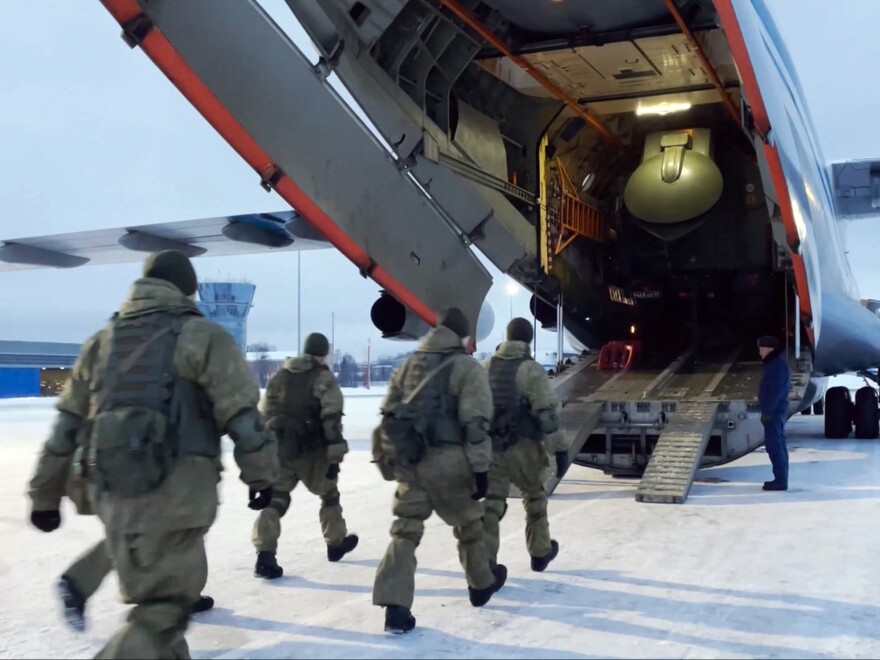
Russia-led alliance troops have arrived in Kazakhstan after mass protests
Russia-led alliance troops arrived in Kazakhstan on Thursday after increasingly chaotic and violent protests rocked the nation for days and resulted in dozens of people killed and hundreds injured, according to authorities.
The troops were deployed as part of a “peacekeeping” force from the Collective Security Treaty Organization, a Russia-led Eurasian military alliance akin to NATO. The CSTO, composed of Russia, Armenia, Belarus, Kazakhstan, Kyrgyzstan and Tajikistan, announced early Thursday that units had arrived and would be conducting operations “stabilizing” the country and protecting “important state and military facilities.”
Kazakhstan’s president, Kassym-Jomart Tokayev, requested CSTO’s assistance late Wednesday evening, describing protesters as “a band of international terrorists.” Nikol Pashinyan, the prime minister of Armenia and the chairman of CSTO’s Security Council, announced later that evening that the organization had accepted Tokayev’s request and that forces would intervene “for a limited period of time.” Pashinyan echoed Tokayev’s rhetoric characterizing protests “as a result of external intervention.”
The CSTO has not said how many troops are or will be in Kazakhstan.
When fuel prices spiked, protests spread
The current protests began Sunday in Western Kazakhstan after the government removed a price cap on liquefied petroleum gas (LPG) – the primary fuel used for vehicles in the country — causing prices to immediately double. On Tuesday, Tokayev announced that the government would institute a new price cap for 180 days, rolling back LPG prices to the 2021 level, but by then protests had spread across the country.
Clashes between protesters and Kazakh authorities broke out across the country throughout the week, with numerous protests escalating in Almaty, Kazakhstan’s largest city. On Wednesday, demonstrators attempted to take over government buildings, police headquarters and district police offices in Almaty and set fire to the prosecutor’s and mayor’s offices there, The New York Times reported. Demonstrators briefly took control of the airport in Almaty, though officials and Russian news agencies have said it has since been cleared.
Police spokeswoman Saltanat Azirbek said “dozens of attackers were liquidated” in clashes with police, during an interview on state news channel Khabar-24.
Almaty police said 353 police and security personnel were injured in clashes and 12 killed.
“It is an undermining of the integrity of the state and most importantly it is an attack on our citizens who are asking me … to help them urgently,” Tokayev said in a televised address Wednesday night.
“Almaty was attacked, destroyed, vandalized, the residents of Almaty became victims of attacks by terrorists, bandits. Therefore it is our duty … to take all possible actions to protect our state.”
Tokayev initially appeared to make conciliatory gestures to protesters early Wednesday, instituting the LPG price cap, announcing the resignation of Prime Minister Askar Mamin and his Cabinet, and removing former President Nursultan Nazarbayev — who led Kazakhstan for 30 years — from the country’s security council.
However, by late Wednesday, with protests escalating, the government announced a national state of emergency until Jan. 19, with an overnight curfew. The internet was subsequently shut down nationwide, according to Netblocks, a watchdog organization that monitors internet freedom.
But fuel prices aren’t the only trigger
While the protests were sparked by fuel prices, many activists and protesters have said the discontent runs much deeper, citing economic precarity, the pandemic and a lack of democratic outlets for redress.
Mukhtar Umbetov, a rights activist, told the Times that the government “has removed all legal ways to participate in politics” and that people lack representation to solve problems.
Much ire has been directed toward Nazarbayev, who despite stepping down in 2019 still wields considerable influence in Kazakhstan. Videos posted to social media depicted protesters tearing down a statue of Nazarbayev while shouting “Old man, leave!”
“Nazarbayev and his family have monopolised all sectors, from banking to roads to gas. These protests are about corruption,” Zauresh Shekenova, a 55-year-old protester in southeast Kazakhstan, told The Guardian.
“It all started with the increase in gas prices but the real cause of the protests is poor living conditions of people, high prices, joblessness, corruption.”
Copyright 2022 NPR. To see more, visit <a href=”https://www.npr.org” rel=”nofollow”>https://www.npr.org</a>.
1:52 PM 1/6/2022 – Russia News Review: “ISIS – SHMISIS”: How Kazakhstan could shift Putin’s calculus on Ukraine | The Powder Keg Of Post-Soviet Central Asia | The Histories of the Human Civilizations are the Histories of Weapons and Wars

Michael Novakhov 40m Shared with Public ![]()
High-profile Russian Senator Konstantin Kosachev, chair of the Foreign Affairs Committee, says protesters in Kazakhstan included militants in armed gangs operating in “Middle East, primarily in Afghanistan.”
— Peter Leonard (@Peter__Leonard) January 6, 2022
The CIA doesn’t always use money to gain vital secrets- Vietnamese farmers hired by the CIA during the Vietnam War were paid in gardening tools rather than money, and Afghan warlords offered a goldmine of information on Taliban activities in exchange for Viagra pills.#CIA #spy pic.twitter.com/RKxXYIiBV9
— Robert Morton (@Robert4787) January 2, 2022
How Kazakhstan could shift Putin’s calculus on Ukraine
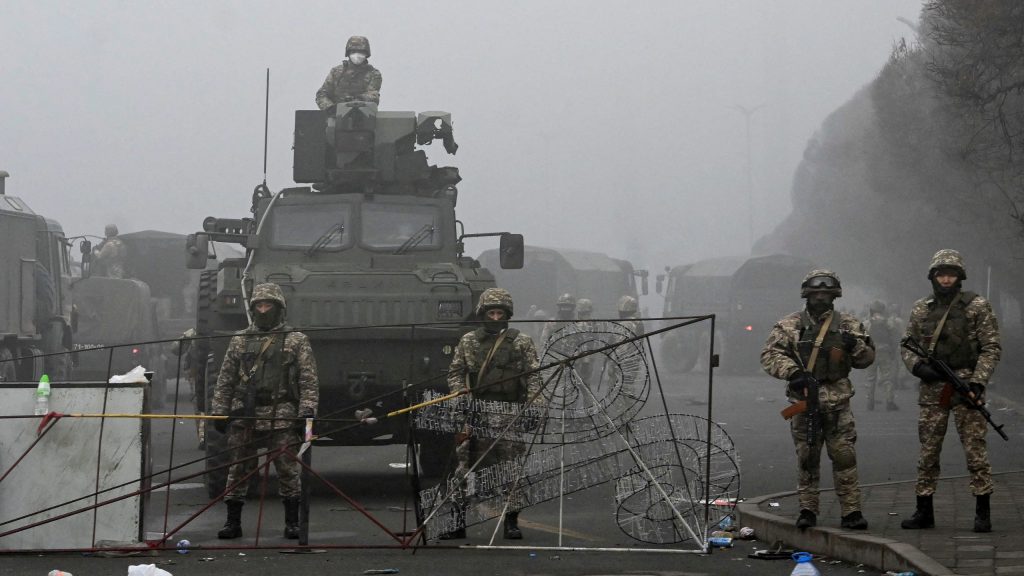
Thirty years ago, the Soviet Union collapsed in a largely bloodless way. But events in recent years have proved that bloodlessness to be only temporary. Russia’s war against Ukraine—with fourteen thousand Ukrainian fatalities thus far (and more in the offing if Moscow sends an invasion force of one hundred thousand into the country)—is the major proof. Its brief 2008 conflict in Georgia, meanwhile, caused some twenty thousand deaths.
Sadly, the unrest in Kazakhstan may provide additional evidence. As of Thursday, dozens have been reported dead as clashes between protesters and police intensified.
The crisis in the Central Asian former Soviet republic fuses geopolitical issues across Eurasia, from Moscow’s efforts to cow the West and subjugate Ukraine to its delicate relationship with China—and the implications are enormous. It’s a happy surprise that this region has been largely stable since the end of the Tajik civil war in the late 1990s. It has proved to be a buffer for major players Russia, China, and India, as well as lesser but still important powers such as Pakistan and Iran. But the instability in Kazakhstan offers opportunities for these states to enhance their position in Central Asia, and they are seizing them.
Besieged Kazakh President Kassym-Jomart Tokayev has asked the Collective Security Treaty Organization (CSTO), the Russian-led military alliance, to help restore order. Armenian Prime Minister Nikol Pashinyan, who is the rotating head of the group, has announced it will send troops. This is significant for two reasons. First, Russian President Vladimir Putin’s goal of restoring Russian influence in the post-Soviet space is not limited to Ukraine, Georgia, and Moldova; Tokayev’s invitation gives Moscow the chance to do just that in Central Asia’s richest country. Second, Tokayev had another option: the Shanghai Cooperation Organization (SCO), led by China but which also includes Russia. Despite growing cooperation between Moscow and Beijing in opposing US policies globally, the two are competitors in Central Asia.
Putin infamously said at Lake Seliger in 2014 that Kazakhstan was an artificial country created by its first president, Nursultan Nazarbayev, and its population understands the importance of close relations with Russia. Ethnic Russians comprise 18 percent of the country’s population, and they—along with more than 60 percent of Kazakhstan’s hydrocarbon resources—are concentrated in the north, not far from the Russian border. Since Putin’s remark, Kremlin allies have called for the “return” of northern Kazakhstan to Russia. Meanwhile, China has its own territorial pretensions on the country.
It’s safe to assume that the CSTO decision was in fact Putin’s decision. This means that he considered it more important to strengthen Moscow’s position in Kazakhstan than to accommodate China. While this is not likely to have an immediate, visible impact on Russia’s relations with China, it’s a message to Beijing that there are limits to Moscow’s acceptance of junior-partner status in their bilateral relationship. Over time, this will shape the relationship.
And this brings us to Moscow’s current buildup of approximately one hundred thousand troops on and near Ukraine’s border, as well as its efforts to squeeze concessions out of the United States, NATO, the European Union, and Ukraine with the threat of a major conventional offensive. He is threatening this invasion because his nearly eight-year hybrid war against Ukraine has failed to achieve its objective: to prevent the country’s westward drift. But Putin’s current focus on Ukraine is not meant to come at the expense of his other geopolitical objectives in Eurasia. To the extent possible, he would like to restore Kremlin influence across the territory of the former Soviet Union. In some places—Crimea, and perhaps northern Kazakhstan—that means Moscow seizing and annexing territory. In other places, it means ensuring national-security and economic policies consistent with Kremlin interests.
The unrest in Kazakhstan poses a question for Putin: Should he continue his intimidation campaign on his western flank, or should he address the dangers to his south? Or can he do both? At the moment, Putin is trying to have his cake and eat it too. Maybe the CSTO can impose order and restore Tokayev’s government without significantly reducing Russian forces on Ukraine’s border. That is certainly the Kremlin preference, because its long military buildup and threats to Ukraine have produced talks with the United States, NATO, and the Organization for Security and Cooperation in Europe that might achieve some concessions on issues such as limiting NATO enlargement and the Alliance’s activities in Eastern Europe, or the Minsk talks on ending Moscow’s war in the Donbas region of Ukraine. He would prefer not to reduce the pressure.
Yet if the initial CSTO deployment fails, Putin may face a dilemma. Moscow’s pre-buildup situation in Ukraine was a stalemate; in Kazakhstan, Moscow’s position in Central Asia would deteriorate if a popular revolt produces a reform-minded government, or if Tokayev calls on China and the SCO for help to stay in power. The question then becomes: Would Putin pull troops from Ukraine’s border to deal with disorder in Kazakhstan and enhance Russia’s standing in Central Asia? Doing so certainly entails less risk than launching a major conventional military offensive in Ukraine. Putin could easily explain standing down temporarily in the west to secure a new trophy in the south. And that still would not preclude a third buildup of Russian forces on Ukraine’s border.
The stakes for Putin are large in both Kazakhstan and Ukraine—but it may prove difficult for the arch opportunist to successfully attend to both at the same time.
John Herbst is the senior director of the Atlantic Council’s Eurasia Center and former US ambassador to Ukraine and Uzbekistan.
Further reading
Image: Troops guard the main square in Almaty, Kazakhstan, where hundreds of people protested against the government, January 6, 2022. Photo by Mariya Gordeyeva/File Photo/REUTERS
Next up is Putin: “Leave, the old man!” – “Shal ket!”
#CIA #ODNI #JOSSICA
Post-Soviet Central Asia is a powder keg. Potentially, it is the Western Ukranian & Eastern Asian fronts. Putin’s regime will fall & crumble like a house of cards. Whoever’s strategic idea it is, IT IS BRILLIANT!
powder keg meaning – GS https://shar.es/aWKBcL
[the_ad_placement id=”manual-code”]
bne IntelliNews – Amid Kazakhstan upheaval ‘Leader of Nation’ Nursultan Nazarbayev reportedly leaves country ‘for medical reasons’
Amid Kazakhstan upheaval ‘Leader of Nation’ Nursultan Nazarbayev reportedly leaves country ‘for medical reasons’

On January 5 – a day that saw Kazkh President Kassym-Jomart Tokayev stripped Nazarbayev of his role as head of the State Security Committee, the successor to the Soviet-era KGB – a private plane of Nazarbayev’s daughter Dinara and her husband, oligarch Timur Kulibayev, reportedly departed for Kyrgyzstan, with other Nazarbayev family members possibly on board. Alexey Venediktov, editor-in-chief of Echo of Moscow radio, referred to a source in the Russian Foreign Ministry in breaking news of the plane’s departure, though it was unclear if the ex-president himself was on board. Nazarbayev was reported as ready to leave Kazakhstan “for medical treatment”.
Analysts will now ponder what will become of the Nazarbayev clan and their vast wealth built up across swathes of the Kazakh economy, Central Asia’s largest. Tokayev also fired Nazarbayev’s nephew as No. 2 at the State Security Committee, with the turmoil giving him an opportunity to make, at least in public, a clean break from his predecessor, who handpicked Tokayev to succeed him in early 2019 and has been widely seen by Kazakhs as exercising sometimes decisive power from the shadows during the Tokayev administration.
A bne IntelliNews correspondent in Almaty said there was speculation that Tokayev was also replacing other key officials with loyalists and that the outcome of the turmoil might even eventually be described as a “coup”. He noted that the TV channel run by Nazarbayev’s daughter Dariga, KTK, had gone off air and stopped broadcasting. Nazarbayev’s website, elbasy.kz, was, meanwhile, down on the morning of January 6.
Reshaped establishment may lick its lips
Whatever reshaped Kazakh establishment emerges out of the carnage presently seen in the country may lick its lips at the prospect of taking over Nazarbayev and Kulibayev assets.
A December 2020 RFE/RL feature entitled “Big Houses, Deep Pockets –The Nazarbayev Family’s Opulent Offshore Real Estate Empire” – offers one look at some of what is at stake. RFE/RL identified at least $785mn in European and US real estate purchases made by Nazarbayev’s family members and their in-laws in six countries over a 20-year span.

Nazarbayev’s son-in-law and oligarch Timur Kulibayev (Image: UK Foreign and Commonwealth Office).
The feature noted: “Prominent among those [family members] is Kulibayev, who has been dogged for years by accusations that his wealth, mainly from his work in the oil and gas industry, derives from his familial relations. The Financial Times on December 2 said it had uncovered a secret scheme that allegedly channelled tens of millions of dollars from contracts related to a massive gas pipeline to China to Kulibayev.”
Former Communist boss Nazarbayev is well-known to former UK prime minister Sir Tony Blair. In 2014, Blair’s role in advising countries with poor human rights records came under scrutiny after he gave Nazarbayev advice on how to avoid his image being tarnished by the killing of civilian protesters by police in the oil town of Zhanaozen. The former British Labour Party leader’s consultancy, Tony Blair Associates, signed a multi-million-pound deal to advise Kazakhstan’s leadership under Nazarbayev on good governance, just months after Nazarbayev was controversially re-elected with 96% of the vote and weeks before the massacre.
If Nazarbayev, born in a rural town near largest Kazakh city Almaty in July 1940, has departed Kazakhstan for good, there will be big speculation as to where he, and family members, will make their new home.
Favourite destination Russia
Russia is a favourite destination for autocratic leaders fleeing their countries. In 2014 ousted Ukrainian president Viktor Yanukovych flew to Russia on a private jet just before the crowds gathered in central Kyiv’s Maidan Square marched to his private residence to arrest him.
As bne IntelliNews reported at the time, embarrassingly Yanukovych used a private jet charted from a company belonging to his replacement, former president Petro Poroshenko, to escape justice.
Yanukovych took several members of his elite with him as well as reportedly millions of dollars in cash. When protesters arrived at his purpose-built Mezhyhirya they found an Aladdin’s cave of treasure, including a private zoo with ostriches and even a loaf of bread made out of solid gold (which later disappeared).
During times of uncertainty it is usual for leading political and business figures to absent themselves from their country – just in case. When Russian oil tycoon Mikhail Khodorkovsky was arrested in October 2013 by Russian authorities many of Russia’s top oligarchs flew abroad just before the arrest to ensure they didn’t get caught up in a general sweep-up of oligarchs or fall victim to machinations of their rivals to use the situation to take out other oligarchs by persuading the security services to add more names to the list, according to bne IntelliNews sources speaking at the time.
Likewise, following the US pullout from Afghanistan last summer, then Afghan president Ashraf Ghani fled his country with helicopters full of cash, abandoning thousands of regular citizens that were thronging the airport, as reported by this publication at the time.
Ghani escaped the capital only hours after the Taliban appeared outside Kabul, taking a plane to the Tajik capital of Dushanbe before flying on to the Uzbek capital Tashkent, from where he headed to the Middle East, according to some reports. Ghani reportedly arrived at the airport with so many bags of money that he could not get them all into the helicopter and left at least one bag of cash on the tarmac as he fled.
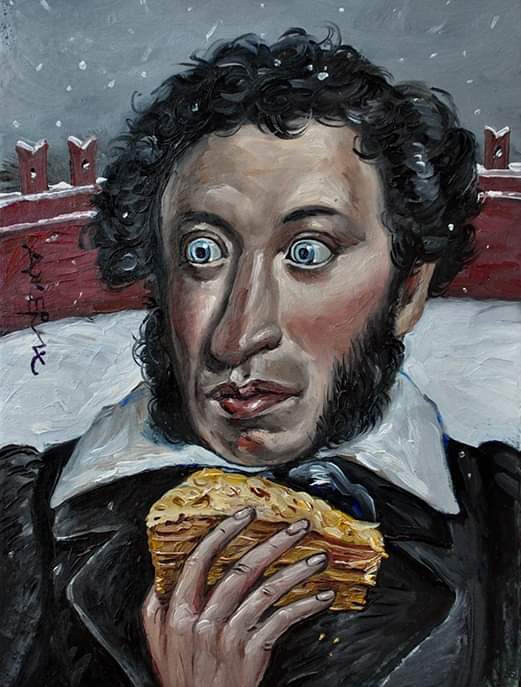
M.N.: Пушкин просто в ужасе от того, что сейчас в России творится! Michael Novakhov Retweeted  Художники и Поэты@Xudozhnikipoeti Джерих Анжела. «Пушкин и Наполеон». Картон, масло. 16×12 см. 2019 г.
Художники и Поэты@Xudozhnikipoeti Джерих Анжела. «Пушкин и Наполеон». Картон, масло. 16×12 см. 2019 г.
The Histories of the Human Civilizations are the Histories of Weapons and Wars – Google Search
Space Laser Weapons and Modern Warfare – Google Search https://shar.es/aWKELO
NATO, US, Israel, and Russia Space Laser Weapons Comparison – Google Search https://shar.es/aWKET1
Advice to the Russian Leadership
Russia News | Russia Video News | Russia, Ukraine, Nato | Putin and Putinism | Biden and Putin | Latest Video News from YouTube
Russia News Review – December 2021
[the_ad_placement id=”manual-code”]
Russia News – 2022 | Russia News Videos – 2021
